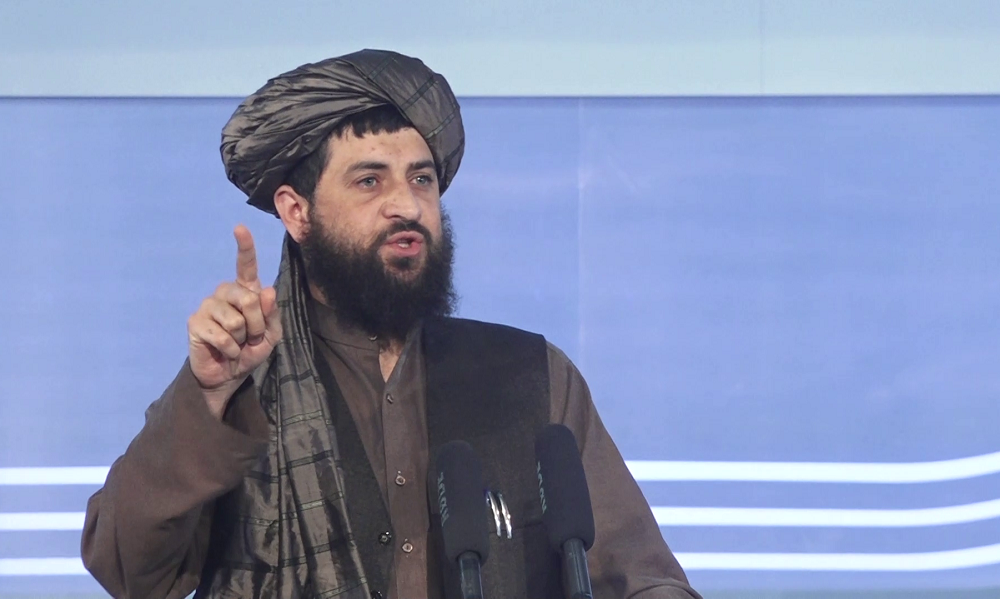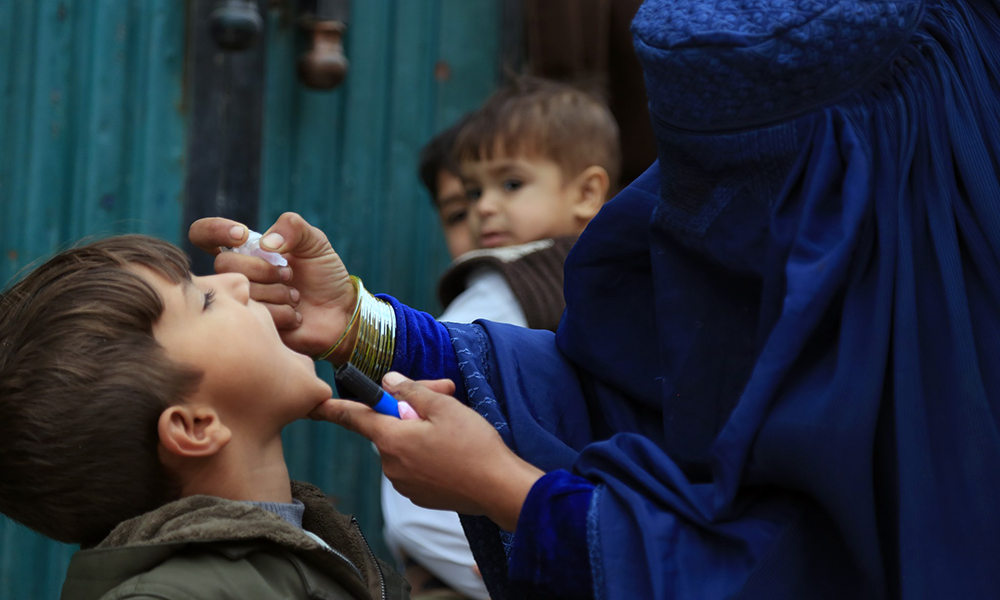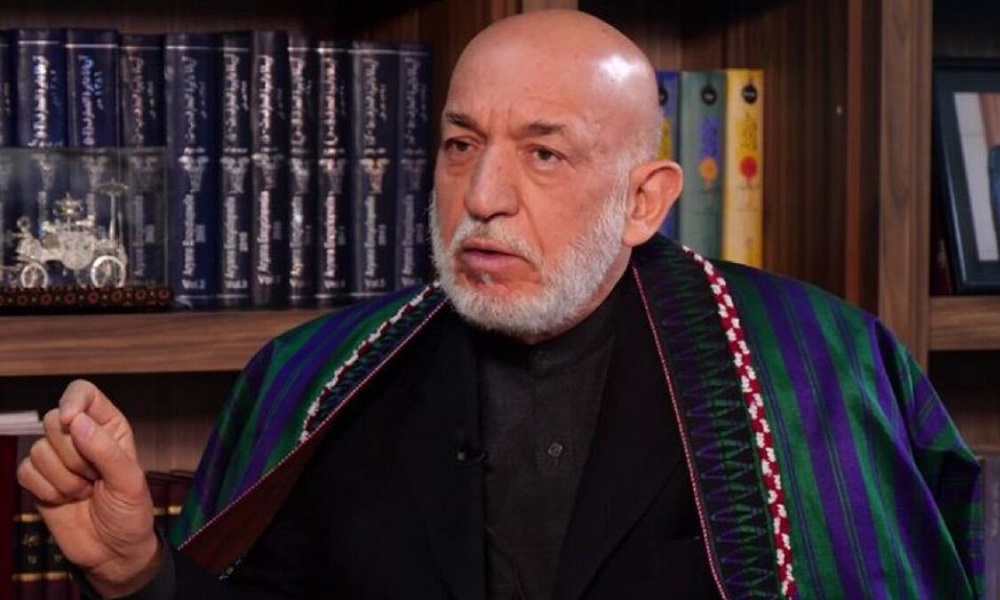Latest News
Defense minister warns insurgents against threatening Afghanistan’s security

Islamic Emirate of Afghanistan (IEA) forces will not allow anyone in the country or abroad to undermine security, the acting defense minister, Mullah Yaqoob Mujahid, said on Sunday.
“Inshallah, all your evil plans will be thwarted and you will be routed,” Mujahid said at a ceremony in Kabul on Sunday to mark the death anniversary of IEA’s founder Mullah Mohammad Omar.
“We will not allow anyone in Afghanistan to undermine security or threaten it from the outside,” said Mujahid who is also the son of the late IEA founder.
“We will respond courageously to anyone, and we are not afraid,” he said.
First Deputy Prime Minister Mullah Abdul Ghani Baradar meanwhile said that preserving the Islamic system is the duty of all the forces of the IEA.
“We have followed in Amir-ul-Momin’s footsteps and we are here because his stances were effective,” Baradar said. “May Allah guide us to further pursue his path.”
Mullah Abdul Salam Hanafi, second deputy prime minister, said that with the return of the IEA, all ethnic groups in Afghanistan are now living together “like brothers”.
“We don’t want Afghanistan’s soil to be used against neighbors and others, and we expect others also not to allow anyone to undermine the security of Afghanistan,” Hanafi said.
He said that IEA leaders would “spare no sacrifice to ensure safety of every Afghan.”
IEA’s spokesman Zabihullah Mujahid said that the objective of IEA’s struggles were to establish a “real Islamic government” in Afghanistan.
He said that preserving the system requires strong protection efforts.
Mullah Omar was an Afghan religious scholar, partisan fighter and political leader. In the 1980s, he joined the Afghan mujahideen in their war against the Soviet Union and the Democratic Republic of Afghanistan and went on to establish the IEA in 1994.
By 1995 he had captured much of southern and western Afghanistan and after the IEA seized the Afghan capital of Kabul in September 1996, Mullah Omar was proclaimed the head of state of Afghanistan.
Following the US invasion of Afghanistan in 2001, Mullah Omar secretly fled his residence in Kandahar and is believed to have gone into hiding in December 2001 in Zabul province.
He died of tuberculosis in Zabul on 23 April 2013.
Latest News
A new polio vaccination campaign is set to launch in Afghanistan
Afghanistan and Pakistan are the only two countries in the world where polio has not been eradicated.

The “Afghanistan Polio-Free” organization announced that a new round of polio vaccinations will begin on Monday, December 23, in various provinces of Afghanistan.
The organization did not specify which provinces will be targeted or how long the vaccination campaign will last.
Afghanistan and Pakistan are the only two countries in the world where polio has not been eradicated.
On December 4, 2023, the World Health Organization (WHO) issued a statement reporting a 283% increase in polio cases in Afghanistan. According to the WHO, the number of positive environmental samples for wild poliovirus type 1 in Afghanistan in 2024 reached 84, compared to 62 cases in 2023.
The Ministry of Public Health claimed in November 2024 that no new cases of polio had been reported in Afghanistan for the year.
Latest News
G7 envoys urge national dialogue for lasting stability in Afghanistan

Special Representatives of the Group of Seven (G7), including the European Union, have emphasized the importance of a national dialogue for achieving long-term stability in Afghanistan.
Following a meeting on Afghanistan in Geneva, Switzerland, G7 special envoys issued a joint statement calling for the restoration of women's rights and urging the Islamic Emirate to fight terrorism.
The statement reads: "Achieving sustainable peace and stability requires credible governance that represents all segments of Afghan society."
The representatives also expressed concern over the IEA’s decision to ban girls from attending medical institutes, warning that it will have devastating consequences for the citizens, particularly mothers and their infants.
The statement described this ban as unacceptable and called on the Afghan authorities to lift it immediately.
Earlier, countries and international organizations had called for the removal of restrictions on the education and employment of women and girls, emphasizing the need for a national dialogue.
In response to these concerns, IEA has repeatedly stated that it will not allow interference in the internal affairs of the country.
The G7 special envoys also expressed their concern about the recent terrorist attacks in Kabul and the surrounding region, warning that terrorism remains a serious threat to Afghanistan's security. They confirmed the actions of the IEA against Daesh but stressed the need for more decisive measures.
Latest News
Afghanistan’s bright future lies in educating girls: Karzai

Hamid Karzai, the former president of Afghanistan, says the demand of Afghan girls for the reopening of schools and universities is their fundamental right and adds that Afghanistan cannot have a bright future without ensuring access to education for girls.
In a statement on his X (formerly Twitter) account, Karzai said: "The demand and voice of our country’s girls for education and knowledge is a rightful one and crucial for a prosperous Afghanistan."
He further emphasized, "Empowering the youth—both girls and boys—is the only way to achieve self-reliance, break the cycle of poverty, and drive the development and prosperity of society."
Karzai underscored that education is vital for Afghanistan’s growth and development, expressing hope that the doors of schools and universities for girls will be reopened as soon as possible.
-

 Sport5 days ago
Sport5 days agoLanka T10: All three matches abandoned due to rain
-

 Latest News5 days ago
Latest News5 days agoIndia hoping to import coal and marble from Afghanistan
-

 Sport4 days ago
Sport4 days agoZimbabwe’s opening ODI against Afghanistan abandoned
-

 Latest News5 days ago
Latest News5 days agoJapan announces $27.5 million aid package to Afghanistan
-

 Latest News1 day ago
Latest News1 day agoAfghan men must stand with women to support viable future of country: US envoy
-

 Latest News3 days ago
Latest News3 days agoTwo horror accidents on Kabul-Kandahar highway leave 52 dead
-

 World3 days ago
World3 days agoNorth Korean troops suffer 100 deaths, struggling in drone warfare, South Korea says
-

 International Sports4 days ago
International Sports4 days agoLanka T10: Kandy Bolts in at 4th spot in playoffs after thrilling day
























